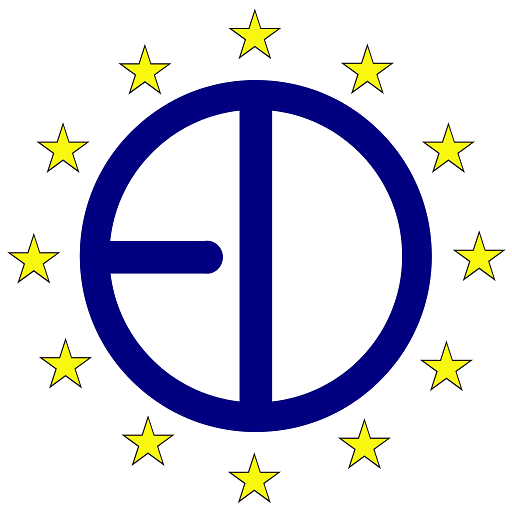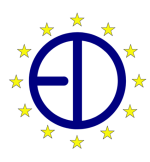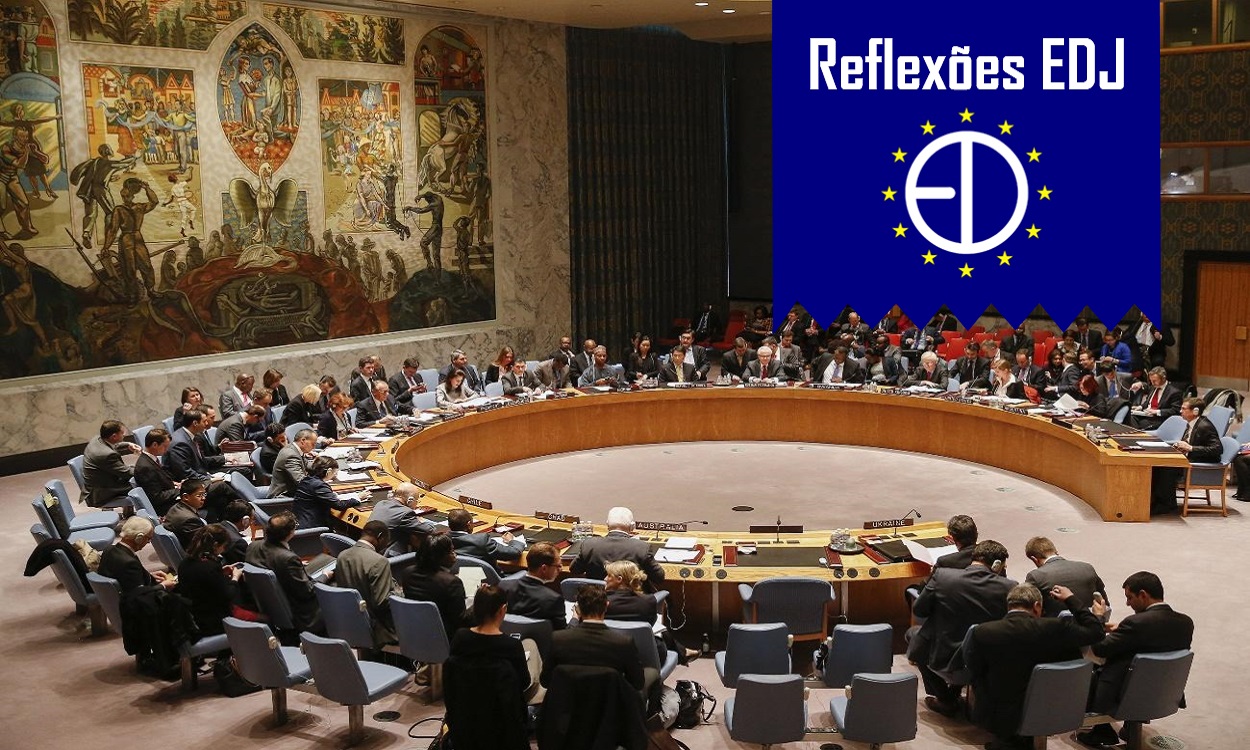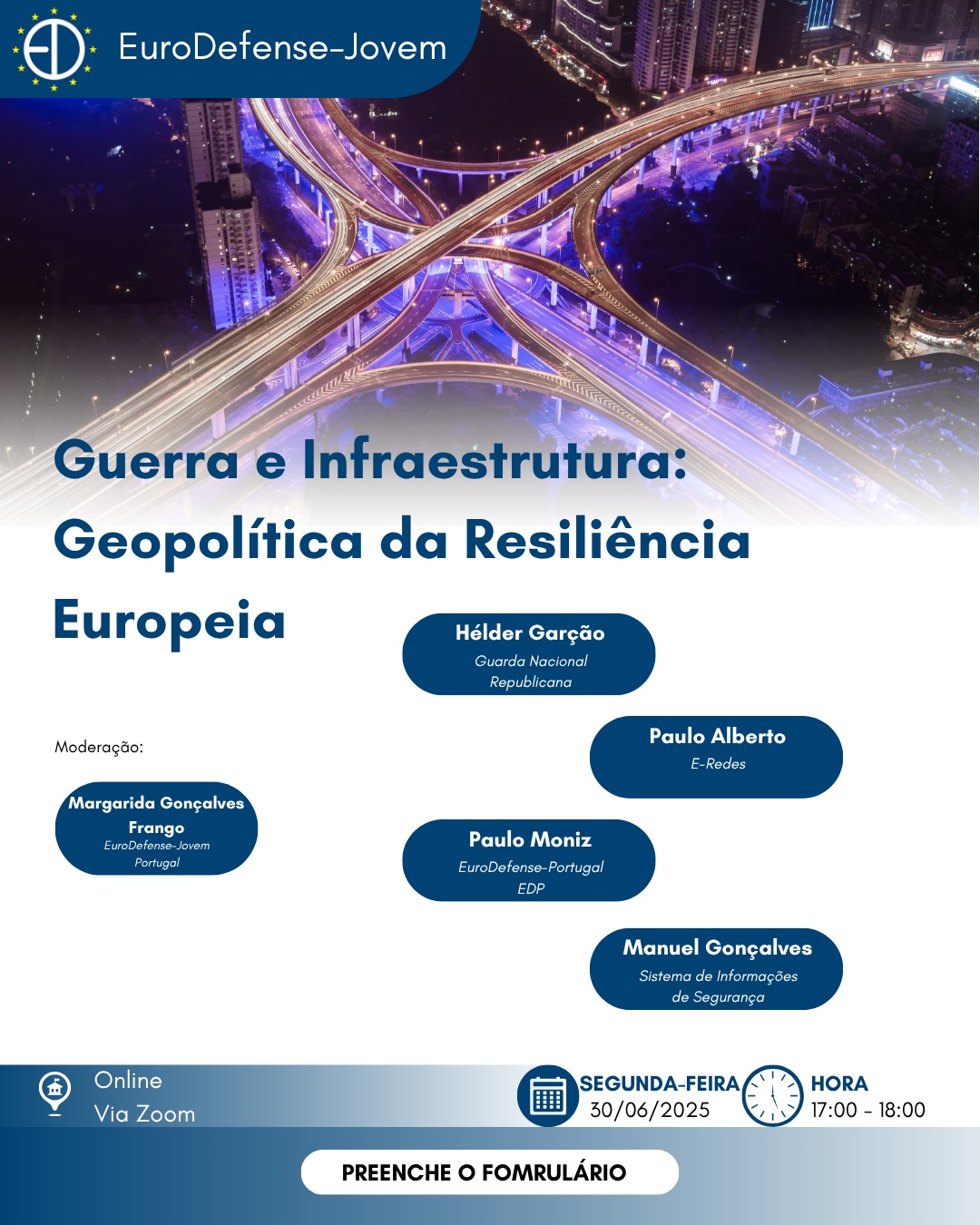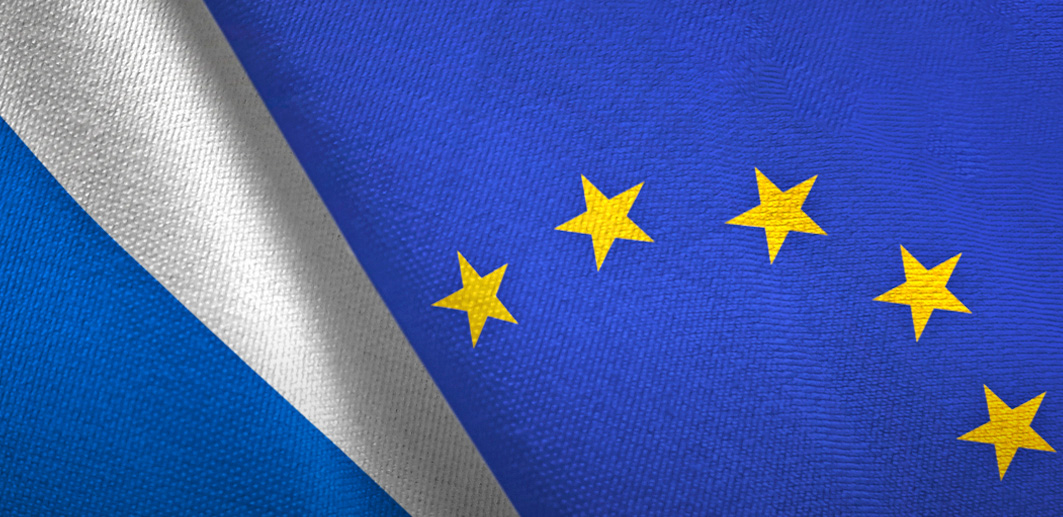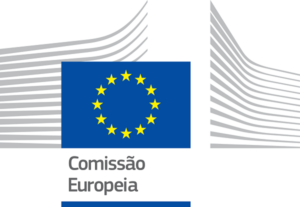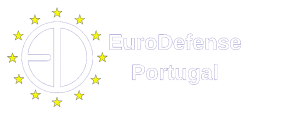1. The United Nations
1.1. History
Following the failure of the League of Nations, considering that the Second World War arose a few years after the creation of such organization, in 1920, where evidently the League of Nations did not pursue its goal of establishing “international peace and security” , according to the preamble which opens the Convention that created the League. By those means, the world felt once again the need to adopt a general international institution which would oversee the conduct of the world community to ensure that wars, regardless the magnitude, and the sorrow that fell upon every single citizen on the face of earth could not happen again. With that concern in mind, the United Nations was officially born on 26 June 1945 in San Francisco, coming into force on 24 October 1945 with the ratification by 50 countries of the United Nations Charter, or as many like to call it, the United Nations Constitution.
In the sequence of the trauma that the League of Nations left on the world, the United Nations first concern was not to repeat the same mistakes as their older and elder “cousin”, but also learning from the wisdom it left behind written on its own convention. The first repair was to withdraw the right to veto from all the States that composed the League, since this power convoluted the making process of any resolution and therefore significant change of the world to be effective. The UN Charter on its article 27 (3), implicitly concedes the right to veto only to the five permanent members of the Security Council, in order to not only organize the matters and decisions that are subject to be rejected by simply one member of the Council, but also to avoid leaving a void on a worldwide matter. Both these figures will be further and detailly explained soon in this paper.
A second factor that led to the League of Nations doom and the United Nations success in comparison was the ratification by the United States of America of the UN Charter. It is well known that this country, since the end of World War I, while Europe as a whole was suffering and (as we know now, vainly), trying to recover from the damage left by the war, saw its economy and supremacy grow and get stronger every day, which was responsible for the affirmation of US as a world supremacy that still persists today. Therefore, the support of this country was of pivotal importance for the triumph and success of the United Nations. And the opposite for the League of Nations, that without the approval of the most influential country in the world, even back in the 40`s, was doomed to perish.
But the League of Nations wasn’t entirely a disappointment. In fact, some provisions from its Covenant inspired some articles from the UN Charter. Namely, Article 12 of the Covenant declared that any dispute likely to lead to a conflict between members was to be dealt within one of three ways: by arbitration, by judicial settlement or by inquiry by the Council of the League, provision that its now covered on Chapter VI of the United Nations Charter. Also, Article 15 noted that the Council was to try to effect a settlement of the dispute in question, but if that failed, it was to publish a report containing the facts of the case and “the recommendations which are deemed just and proper in regard thereto” , which can now be found on the chapter in question of the Charter.
1.2. Organs
In order to be more effective, the United Nations is divided in organs, each having a different task and impact on the organization. The 6 main organs are the General Assembly, being the parliamentary body of the UN predicted on article 4 of the Charter; Economic and Social Council, responsible for coordinating the activities of the Members; Trusteeship Council aiming to supervise the administration of trusteeship territories in the light of the “new-born” territories created after the end of WWII; Secretariat, headed by the current Secretary-General of the UN, currently Antonio Guterres that plays a role on the administrative matters of the organization and brings topics for discussion to the UNSC; International Court of Justice, coming to replace the Permanent Court of International Justice and described by article 92 of the Charter as the “principal judicial organ” of the UN; and the subject of this paper, the Security Council.
2. The Security Council
2.1. Historical background
The Security Council was intended to operate as an efficient executive organ whose primary responsibility was the maintenance of international peace and security according to article 24 of the Charter, meaning it is responsible for materializing the main goals of the United Nations as a whole, stipulated in article 1.
Although, the fundamental role that the Security Council plays on the organization did not fully fulfil the expectations that the world laid on it during its early days. The first case is the Israeli-Palestine Conflict, whose worldwide impact is so elder that the matter was taken to the League of Nations in 1922, approving the Declaration of Balfour about stablishing a Jew State in Palestine supporting the Zionist cause but still not solving the conflict. It was in 1948 that the conflict was brought into discussion to the Security Council , although the Council approved several resolutions on the matter, no conclusive and definite measure was taken in order to put an end on this centenary conflict due to the veto powers that we will soon approach
Another case still on the same side of the globe would be the failure of the Council to agree upon measures consequent to resolution 1441 (2002) concerning Iraq’s possession of weapons of mass destruction contrary to resolution 687 (1991) and others precipitated a major division within the Council. The US and the UK commenced military operations against Iraq in late March 2003 without express Security Council authorization and against the opposition of other permanent members .
However, despite this crisis, the Council has begun to assume a more proactive role in certain areas. The effect of resolutions 1373 (2001) and 1540 (2004) with the establishment of monitoring committees with significant authority, together with the increasing use of sanctions against specific states showed the organs power in the scope of the organization.
2. 2. Powers and Competences
The Security Council acts on behalf of the members of the UN through its decisions, whose overwhelming majority are binding upon all member states through the means of article 25 and the provisions found on Chapter VII. In fact, the Council is most times accused of having now legislative powers instead of administrative, a nature that the article in question concedes to the organ, due to not only the biding decisions but also the power of ordering military action and conduct an environmental impact assessment prior to starting up industrial projects. This demonstrates how thin the line between administrative and legislative measures is, calling for a reform of the Council´s composition.
Aside from that, Councils powers are, as previously mentioned, to maintain international peace and security through three permanent committees , three ad hoc committees , subsidiary bodies , a number of sanctions committees covering particular states. Its powers are concentrated in two particular categories: the peaceful settlement of disputes and the adoption of enforcement measures.
The Council may also, under article 33 solve disputes ‘by negotiation, inquiry, mediation, conciliation, arbitration, judicial settlement, resort to regional agencies or arrangements or other peaceful means’; ‘investigate any dispute, or any situation which might lead to international friction or give rise to dispute, in order to determine whether the continuance of the dispute or situation is likely to endanger the maintenance of international peace and security’, according to article 34; call upon the parties to settle their dispute by the means elaborated in article 33; intervene if it wishes at any stage of a dispute or situation, the continuance of which is likely to endanger international peace and security; and under article 36, recommend appropriate procedures or methods of adjustment, taking into consideration the general principle that legal disputes should be referred by the parties to the International Court of Justice. Thus, the Council where it is convinced that the continuance of the dispute is likely to endanger international peace and security, may recommend not only procedures and adjustment methods, but also such terms of settlement as it may consider appropriate.
Through all those means, the UNSC plays a crucial role as the “cops of the world”, manifested on Chapter VII of the Charter, considering it is gifted of powers of control and sanction. Although, it is discussed that the UN has been insufficiently playing this role, leaving the “hard work” to the most powerful States, and therefore raising questions regarding the legitimacy of the organization and its slow undermining.
3. The Five Permanent Members: the P5
3.1. Origin
The famous and maybe “cliché” idea that the winners are the ones who write the history and get to tell it in their favor is in fact true. And that gets evident when we look at the United Nations, whose founding members were the countries that constituted the Allies in the strike of the Second World War. Those States have not only created the United Nations but are also the five permanent members of what may be the most important and decisive organ of the UN.
The Security Council consists of fifteen members, five being allocated to Afro-Asian states, one to Eastern Europe, two to Latin America, and two to Western European, according to the General Assembly resolution 1991 (XVIII), and which are elected for a period of two years, as predicted on article 23 (2). However, five of them are not, since 1945, subjected to the democratic act of elections, being therefore permanent members: the USA, UK, Russia (URSS originally), the Popular Republic of China (Republic of China originally), and France. They were chosen on the basis of power politics in 1945, as the winning wing, and have the veto, a decisive power we will discuss next. But historically, the veto was written into the Charter in view of the exigencies of power by the USSR, that would not have been willing to accept the UN without the establishment of it, to be protected from the Western bias of the Council and General Assembly at that time. This particular curiosity already shows the depth and problematic of this power within the UN and its reflection on the world.
3.2. Powers and Competence: the veto power
Under the article 27 of the Charter, on all but procedural matters, decisions of the Council must be made by an affirmative vote of nine members, including the concurring votes of the permanent members. A negative vote by any of the permanent members is therefore sufficient to veto any resolution of the Council, save with regard to procedural questions, where nine affirmative votes are all that is required.
Whether a matter is considered procedural or substantive has been highly debated, but a statement by the Sponsoring Powers declared that this matter was itself subject to veto, act called “double-veto” that raises a number of issues and constitutes a formidable barrier . However, and fortunately, due to an international costume the permanent and non-permanent members may abstain with regard to a resolution, avoiding “murdering” a resolution.
Although abstention is allowed, the P5 barely exercise it considering that it not only looks that the State does not care for the matter at hand, which could lead to serious political conflicts, but also weakness and lack of a proper position on the subject. And it also goes against their nature, that always have a position over a topic regardless its content. Statistically, only the Peoples Republic of China abstains regularly at the UNSC, consisting of a 30% of the organ’s resolutions . Therefore, the solution of a possibility of abstention is fortunate but also pointless.
3.3. How each P5 exercises its veto power
Starting with the State that demanded the introduction of the veto on the Council, Russia is the country that exercises its “lethally killing power” the most, living up to the demand made in 1945. The Soviet Union vetoed so frequently in its early days that the Soviet ambassador Andrei Gromyko earned the nickname “Mr. Nyet” and Vyacheslav Molotov was known as “Mr. Veto” . The USSR usually vetoed resolutions regarding the admission of new members to counter the US refusal to admit members of the Eastern Bloc, a matter purely political and typical of the Cold War days. After the disintegration of the USSR and the consequent birth of the Russian Federation, most of the States’ vetoes aimed to block resolutions on conflicts with Russian military involvement, including Georgia, Syria and Ukraine.
After Russia, the country that is responsible for most of the “deaths” of the council´s resolutions are the United States of America, vetoing mainly resolutions criticizing and condemning Israel and the ongoing Israel-Palestinian conflict, being the main cause of friction between the General Assembly and the Security Council, consequently “holding the world back”.
The Peoples Republic of China is third in line on the P5 veto order. As priorly mentioned, China is the only permanent member that abstains at the Security Council and rarely exercises its veto power alone, usually following Russia´s decisions on whether to block a resolution. China first used the veto on 25 August 1972 to block Bangladesh’s admission to the United Nations and since 1999 China has not cast a lone veto, meaning it only exercises such powers in matters related to their interest.
France and the United Kingdom usually veto jointly, being the two countries of the P5 that least exercise their veto power. Throughout the Security Council’s history, UK has only vetoed 32 times and France blocked resolutions 15 times, most of which were jointly along with other P5s.
3.4. Problematic and Approach to a Reform
Having analyzed the way each permanent members uses its veto power, several problems come to mind and makes internationalists question the relevance of the veto power and whether its impact in the world instead of being positive is, on the contrary, problematic.
The first criticism surrounds the idea of the undemocratic nature of the veto, considering that a single country can prevent most of the Security Council from taking any action. Peter Nadin argues that “The veto is an anachronism act. In the twenty-first century, the veto has come to be almost universally seen as a disproportionate power and an impediment to credible international action to crises.” The enormous influence of the veto power has been cited as a cause of the UN’s ineffectiveness in preventing and responding to genocide, violence, and human rights violations, ius cogens matters.
However, the General Assembly has pronounced itself over this issue. By adopting A/RES/377 A, on 3 November 1950, over two-thirds of UN Member states declared that, according to the UN Charter, the permanent members of the UNSC cannot and should not prevent the UNGA from taking any and all action necessary to restore international peace and security, in cases where the UNSC has failed to exercise its primary responsibility for maintaining peace. Such an interpretation sees the UNGA as being awarded final responsibility rather than secondary for matters of international peace and security, by the UN Charter.
Aside from the critics regarding the veto power itself, internationalists are also concerned with which State is entitled to it. It is often argued that the composition of the UNSC is outdated, and that the Council is not very representative, leading critics to consider that important southern states such as Brazil, India, South Africa ought to have a permanent seat . However, the complicated mechanisms for amendment of the Charter, bearing in mind that according to articles 108 and 109 of the Charter, it is required inter alia the consent of all the permanent members to any amendment to or alteration of the Charter, and the fact that the speed with which Russia was accepted as the continuance of the former USSR with regard to the permanent seat on the Security Council partly arose out of a desire by the Council to avoid opening up the question of membership for general debate. Those arguments coupled with the existence of the veto, make any change difficult. The fact that the UN charter has been amended only 5 times , sustains the inflexibility of the Charter.
Although, the General Assembly stepping in once again on the UNSC fragile structure, has been considering the question of the ‘equitable representation on and increase in the membership of the Security Council’ and an open-ended working group was established in 1993 to consider the matter further, as mentioned on the General Assembly resolution 48/26. In 2007, the President of the General Assembly appointed five facilitators, who reported that expansion of the Council needed to be based both on the contribution of member states to the maintenance of international peace and security and to the other purposes of the United Nations and on equitable geographical distribution, while addressing the underrepresentation of developing countries as well as small states. One proposal would provide for six new permanent seats with no veto and three new non-permanent seats. Another would provide for no new permanent seats but a new category of eight four-year renewable term seats and one new two-year non-permanent and non-renewable seat. States usually see as candidates for permanent positions on the Council Germany, India, Japan and Brazil, but others are also keen to be considered and no consensus is yet in sight.
4. Conclusion
By the facts here exposed, it is non debatable that the UN system needs immediate reform, specially concerning the P5s and their veto power, in order to be more effective and respond more efficiently to worldwide problems. Although, we shouldn’t ignore the success the UN has been having in some matters, and how far its progress can still go with the passing years and the diplomatic approaches of States changing every day. Therefore, I cannot agree with the idea that the UN is failing, not fulfilling its international expectation, or it’s even considered pointless. Because if a world where the United Nations exists and actively acts is already problematic, I couldn’t bare imagining a world without it.
26 de maio de 2022
Danielle Avidago
Member of Eurodefense Youth
5. References
Duarte, Maria Luísa (2019), Direito Internacional Público e Ordem Jurídica Global do Século XXI, Lisboa, AAFDL Editora.
Kirgis, Frederick (1993), International Organizations in their Legal Setting, 2nd Edition. St Paul.
Klabbers, Jan (2020), International Law, 3rd Edition. Cambridge, Cambridge University Press.
Nadin, Peter (2016), UN Security Council Reform, 1st Edition. New York, Routledge.
Shaw, Malcolm N. (2008), International Law, 6th Edition. Cambridge, Cambridge University Press.
NOTA:
- As opiniões livremente expressas nas publicações da EuroDefense-Portugal vinculam apenas os seus autores, não podendo ser vistas como refletindo uma posição oficial do Centro de Estudos EuroDefense-Portugal.
- Os elementos de audiovisual são meramente ilustrativos, podendo não existir ligação direta com o texto.
